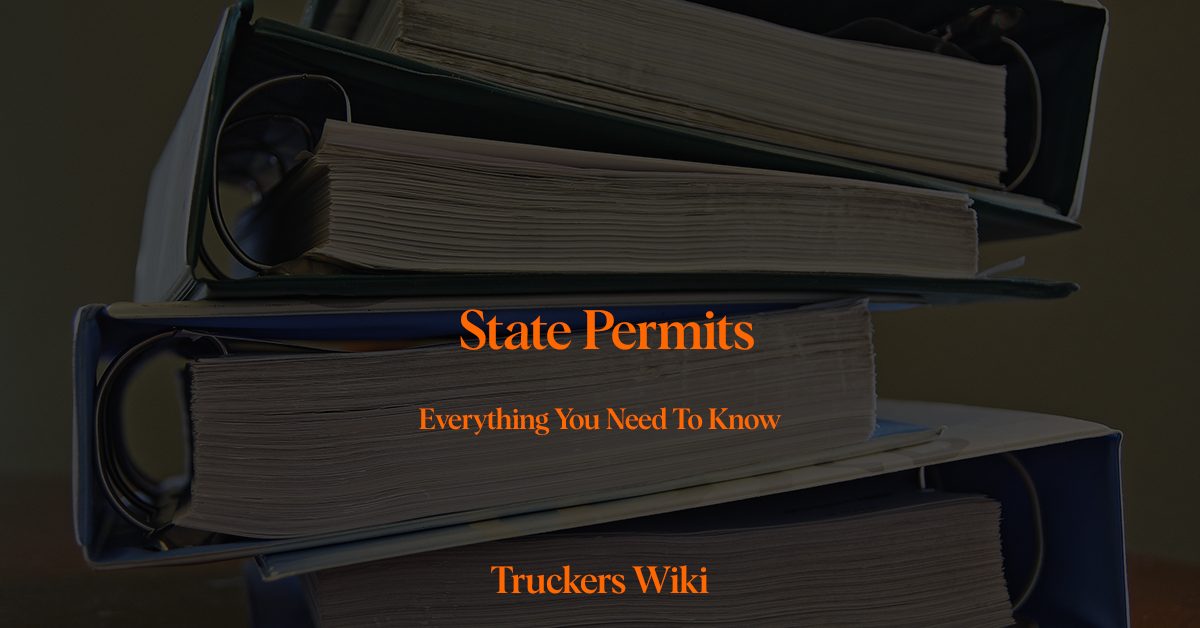
Table of Contents
In the trucking industry, state permits are essential documents that allow truck drivers to operate their vehicles, particularly when they cross state lines or carry special cargo. These permits are often regulated and issued by the Department of Transportation (DOT) or similar agencies within each state. This article delves into the nature, types, and significance of state permits in the trucking industry.
What are State Permits?
State permits are official documents that grant truck drivers and trucking companies the authority to conduct specific activities within a state’s jurisdiction. They are typically required for operations that exceed standard size, weight, or other regulations set by the state.
Types of State Permits
Permits vary in type, depending on the nature of the trucking activity. Some common types include:
Oversize/Overweight Permits: These permits are required when a truck exceeds a state’s maximum legal size or weight limits. Specific requirements vary by state.
Fuel Tax Permits: Certain states require trucking companies to acquire fuel tax permits, which help regulate the taxation of fuel used by commercial vehicles.
Hazardous Materials (HazMat) Permits: These permits are necessary for vehicles transporting hazardous materials. Drivers often need additional training and certifications to qualify for these permits.
Trip Permits: These are temporary permits that allow commercial vehicles to operate in a state for a specific period without needing to register their vehicle in that state.
Acquiring State Permits
The process for obtaining permits varies by state and by the type of permit. In general, it involves submitting an application to the relevant state agency, providing necessary documentation, and paying any applicable fees. Some states allow this process to be completed online.
Check instantpermits.com
For interstate operations, trucking companies often need to acquire permits for each state they operate in. This can be a complex process, and many companies use permit services to handle the logistics.
The digitization of permit processes has allowed several states to simplify and expedite the acquisition of state permits. Many states now offer online applications for various types of trucking permits. This not only makes the process more convenient for truckers and trucking companies, but also improves the efficiency of state agencies by reducing paperwork and enabling faster processing.
States such as California, Texas, Florida, and many others have implemented online systems for obtaining various permits. In California, for instance, the Transportation Permits Issuance Branch offers an online service for the application and issuance of transportation permits. Similarly, Texas provides an online platform, TxPROS, for applying for Oversize/Overweight permits.
Florida’s Department of Transportation offers a self-issue permit system that allows permitted companies to issue their own permits after satisfying certain criteria. Other states, like Illinois and New York, provide online portals where carriers can apply for and manage their permits.
Despite these advancements, the specifics of obtaining permits can still be complex due to varying regulations between states. As such, many trucking companies opt to use permit services, which are agencies that specialize in navigating the permit process across multiple states. These services stay updated on regulation changes and can help ensure a carrier remains compliant no matter where they operate.
In conclusion, the use of technology and online systems has revolutionized the process of obtaining state permits in the trucking industry, contributing to increased efficiency and ease for all stakeholders.
Significance of State Permits
State permits play a crucial role in the trucking industry:
Regulatory Compliance: They ensure that trucking operations comply with state laws and regulations, helping to maintain safety and order on the roads.
Revenue Generation: Permits generate revenue for states, which is often used to maintain and improve transportation infrastructure.
Environmental and Public Safety: Some permits, like HazMat permits, help protect public safety and the environment by regulating the transport of potentially dangerous materials.
Conclusion
State permits are an integral part of the regulatory landscape in the trucking industry. Understanding the requirements for these permits, how to obtain them, and their importance is crucial for anyone involved in trucking operations.

